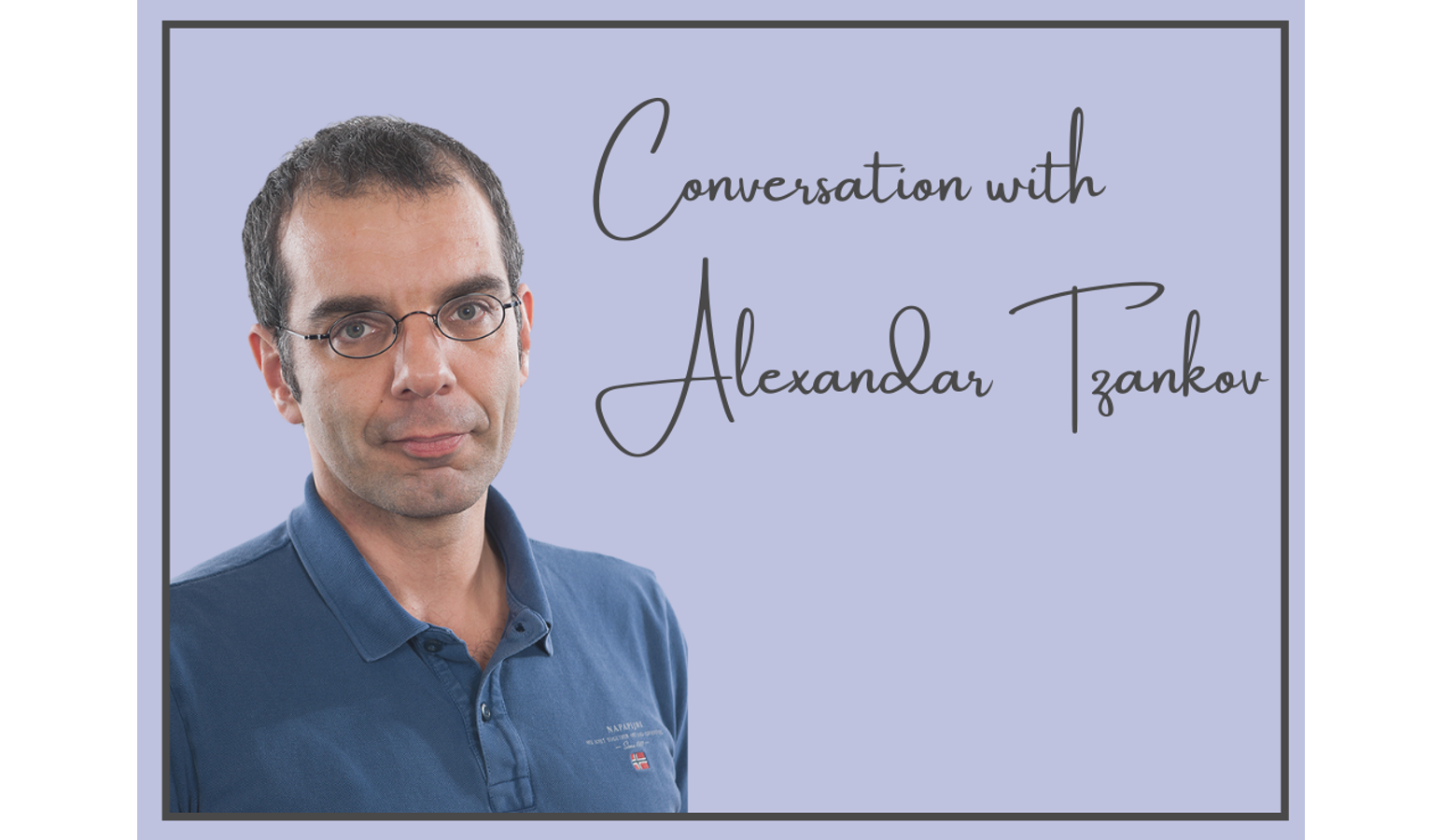February 14th 2022
A Cell Fitness Marker for Predicting COVID-19 Outcomes
COVID-19 is unpredictable. Identifying which COVID-19 patients are likely to develop severe disease versus those at lower risk of complications remains a major clinical challenge. In a recent collaborative study*, BRCCH-funded investigator Professor Alexandar Tzankov (University Hospital Basel) and co-authors discovered a novel biomarker that could be used to predict the prognosis of COVID-19 patients more accurately. In this conversation, Prof Tzankov joins journalist Irène Dietschi to discuss the consortium’s exciting new findings.

Assessing a patient’s risk of developing severe disease is difficult. Usually, individuals who test positive for SARS-CoV-2 are referred to their physician and sent home to isolate. Which patients will develop severe symptoms and require hospitalisation is largely unknown at this point. In a study published in EMBO Molecular Medicine, Prof Alexandar Tzankov and co-authors have now uncovered a means to predict the prognosis of COVID-19 patients more precisely: by using a genetic marker called hFwe-Lose, or simply Flower lose.
Behind this discovery is a relatively recent finding: cells constantly compare their fitness with each other in the body. Collaborators of Prof Tzankov, Prof Eduardo Moreno (Champalimaud Centre for the Unknown, Portugal) and Prof Rajan Gogna (University of Copenhagen), previously identified that the human flower gene (hFwe) can be expressed in different forms, which mark cells as either winners or losers. Fit or 'winning' cells express a form of the flower gene called hFwe-Win, whereas unfit or 'losing' cells express hFwe-Lose. This allows the body to identify unhealthy cells that need to be eliminated.
''The balance of expression of these flower genes is very important physiologically'' says Alexandar Tzankov. ''Their correct expression is critical in embryo and organ development, as well as in diseases such as cancer. hFwe-Lose is a kind of lifetime document for the whole body.'' It can provide insights into how fit a person’s body is at a given moment: What a person’s biological age is, how much cumulative toxicity they have been exposed to during life, if they have pathological obesity, how well does their body handle high blood sugar and hypertension.
In May 2020, Prof Tzankov had just published an autopsy study of 21 deceased COVID-19 patients, the first major observational cohort of its kind. Professors Morena and Gogna suspected that flower genes might play a role in the progression of COVID-19 and decided to reach out to Prof Tzankov. ''They suggested examining the tissues of deceased patients for hFwe-Lose, and that's what we did'' says Alexandar Tzankov. The team also examined hFwe-Lose in patients with co-morbidities such as hypertension, diabetes, obesity and chronic obstructive pulmonary disease (COPD). The results confirmed the researchers' original idea: ''In healthy lungs, the expression of hFwe-Lose is very low. In the lungs of patients with co-morbidities, its expression increases. In patients who died of COVID-19, it is very high'', Alexandar Tzankov explains.

hFwe-Lose is a genetic marker than can be used to predict outcomes in COVID-19 patients. Source: EMBO Molecular Medicine (2021) 13:e13714; https://doi.org/10.15252/emmm.202013714
The researchers then decided to go one step further: They analysed hFwe-Lose levels in nasopharyngeal swab samples collected from 283 COVID-19 -at that time unvaccinated - patients in Wisconsin, USA during the early waves of infection. The team discovered that the higher the hFwe-Lose level was in the nasal sample, the more likely the patient went on to develop severe disease and to undergo hospitalisation and/or die of COVID-19. Remarkably, using computational modelling, the team uncovered that hFwe-Lose levels could be used to predict the risk of hospitalisation and death with a high degree of accuracy. ''For about 85% of people for whom the level of hFwe-Lose predicted hospitalisation, they actually had to go to the hospital. For virtually no one who died, mathematical modelling predicted that they would not have died'' explains Alexandar Tzankov.
hFwe-Lose is relatively straightforward to analyse via the same nasal swab used to test for SARS-CoV-2 infection. ''This makes hFwe-Lose a very useful biomarker for COVID-19 patients'' says Alexandar Tzankov. So what could this mean for clinicians? ''You could potentially identify at-risk COVID-19 patients early, instruct these patients to pay very close attention to symptoms and keep the threshold for hospitalisation lower. That way, emergency situations could possibly be avoided.''
''I admit that this is an optimistic scenario for the use of this marker - but it has the potential.''
Interview: Irène Dietschi
Research article: https://www.embopress.org/doi/10.15252/emmm.202013714
MORE about the BRCCH-supported COVID-19 research by Prof Alexandar Tzankov and consortium.
MORE about COVID-19 research by the pathology team at University Hospital Basel.